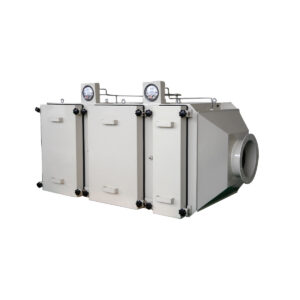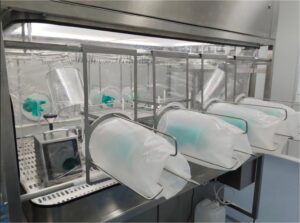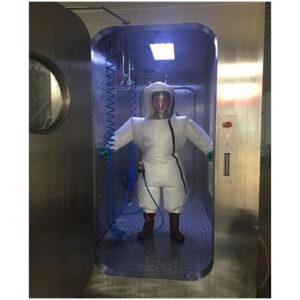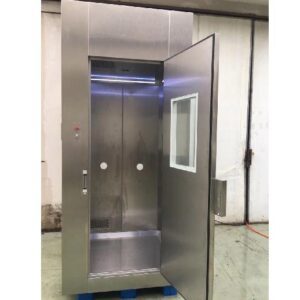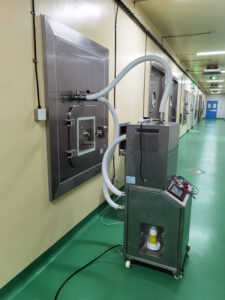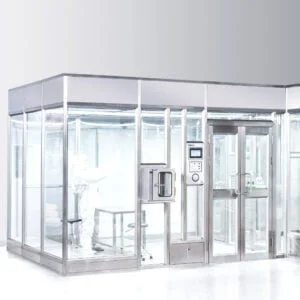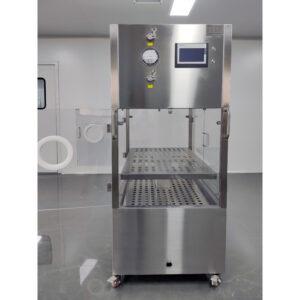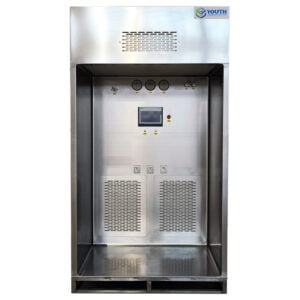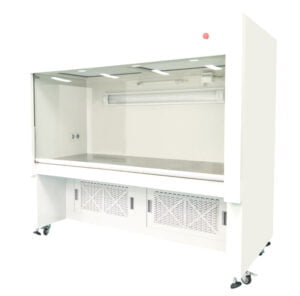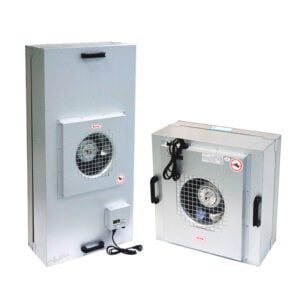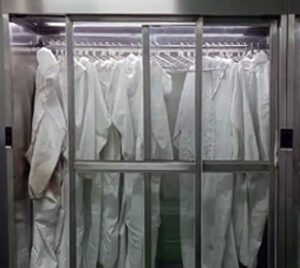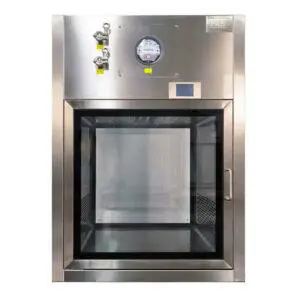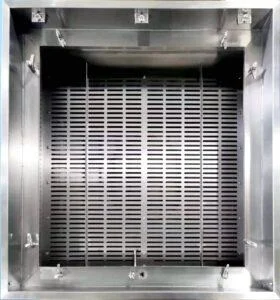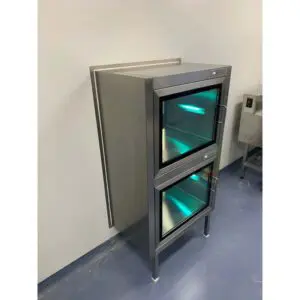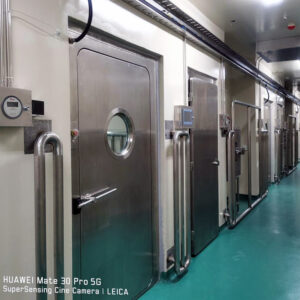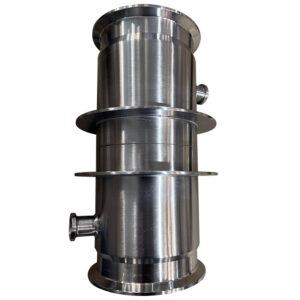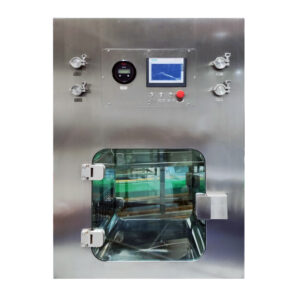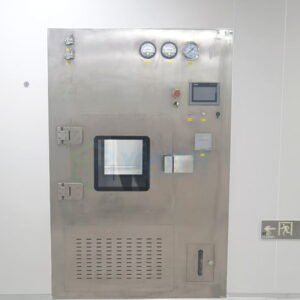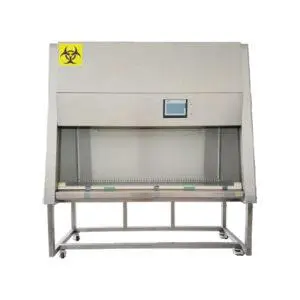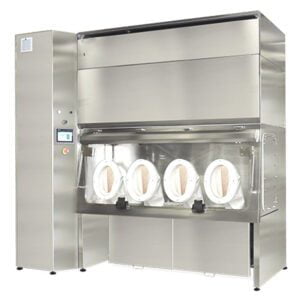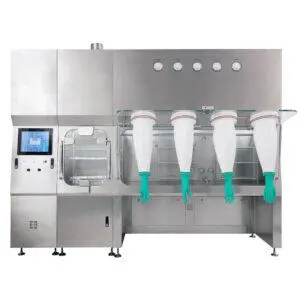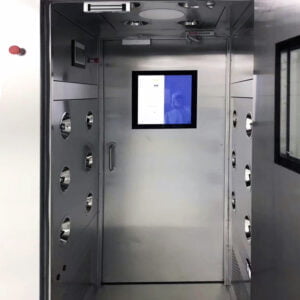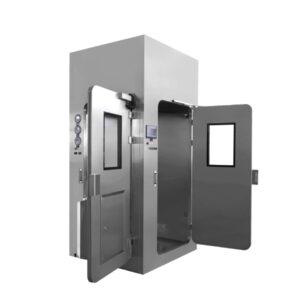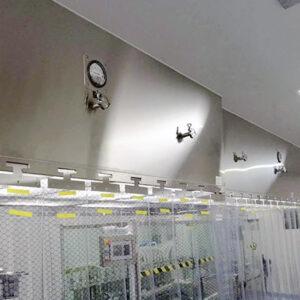In the world of pharmaceutical manufacturing, innovation is the key to progress. One such innovation that has been making waves in recent years is the BIBO system, short for Bag-In-Bag-Out. This groundbreaking technology is revolutionizing drug production by enhancing safety, efficiency, and compliance in pharmaceutical manufacturing processes. As we delve into the intricacies of BIBO in pharmaceutical manufacturing, we'll explore how this system is transforming the industry and setting new standards for drug production.
The BIBO system is a game-changer in pharmaceutical manufacturing, offering a range of benefits that address critical challenges in the industry. From maintaining sterile environments to ensuring worker safety and streamlining production processes, BIBO technology is proving to be an indispensable tool for modern pharmaceutical facilities. This article will examine the various aspects of BIBO systems, their applications in drug production, and the impact they're having on the pharmaceutical landscape.
As we embark on this exploration of BIBO in pharmaceutical manufacturing, we'll uncover the key components of the system, its role in maintaining regulatory compliance, and the innovative ways it's being integrated into drug production workflows. By the end of this article, you'll have a comprehensive understanding of how BIBO technology is shaping the future of pharmaceutical manufacturing and why it's becoming an essential element in the industry's quest for safer, more efficient drug production.
"BIBO systems are revolutionizing pharmaceutical manufacturing by providing a secure, efficient, and compliant method for handling contaminated filters and maintaining sterile environments."
What is BIBO and How Does it Work in Pharmaceutical Manufacturing?
BIBO, or Bag-In-Bag-Out, is an innovative containment system designed to safely change contaminated filters in critical environments. In pharmaceutical manufacturing, where maintaining sterile conditions is paramount, BIBO systems play a crucial role in ensuring product quality and worker safety.
The BIBO system consists of a housing unit that encases filters used in air handling systems. When a filter needs to be replaced, a specialized bag is attached to the housing, allowing the contaminated filter to be removed and a new one installed without exposing the surrounding environment to potentially harmful particles or microorganisms.
At its core, the BIBO system is a sophisticated engineering solution that addresses the challenges of maintaining cleanliness in pharmaceutical production facilities. By providing a sealed method for filter changes, it minimizes the risk of contamination and ensures that the manufacturing environment remains sterile and compliant with industry regulations.
"BIBO systems enable pharmaceutical manufacturers to maintain the integrity of clean rooms and production areas by facilitating safe filter changes without compromising environmental cleanliness."
| BIBO System Components | Function |
|---|---|
| Filter Housing | Encases the filter and provides a secure attachment point for the change-out bag |
| Change-Out Bag | Allows for the safe removal and replacement of contaminated filters |
| Safety Latches | Ensure the housing remains sealed during filter changes |
| Access Door | Provides entry to the filter compartment for maintenance |
The implementation of BIBO systems in pharmaceutical manufacturing has led to significant improvements in operational efficiency and safety. By streamlining the filter change process, these systems reduce downtime and minimize the potential for human error, ultimately contributing to more consistent and reliable drug production.
Why are BIBO Systems Essential for Regulatory Compliance in Pharmaceutical Manufacturing?
In the highly regulated world of pharmaceutical manufacturing, compliance with industry standards is non-negotiable. BIBO systems have emerged as a critical tool in meeting and exceeding these regulatory requirements, particularly when it comes to maintaining clean room environments and ensuring product safety.
Regulatory bodies such as the FDA and EMA have strict guidelines for pharmaceutical manufacturing facilities, especially concerning air quality and contamination control. BIBO systems directly address these concerns by providing a verifiable method for maintaining the integrity of clean rooms during filter changes.
The importance of BIBO systems in regulatory compliance cannot be overstated. They provide a documented, repeatable process for filter maintenance that aligns with Good Manufacturing Practices (GMP) and other industry standards. This level of control and traceability is essential for pharmaceutical companies looking to demonstrate their commitment to quality and safety to regulators.
"BIBO systems are integral to achieving and maintaining regulatory compliance in pharmaceutical manufacturing, offering a standardized and auditable approach to contamination control."
| Regulatory Aspect | BIBO System Contribution |
|---|---|
| Air Quality Control | Ensures consistent air filtration performance |
| Contamination Prevention | Minimizes risk during filter changes |
| Documentation | Provides traceable records of maintenance activities |
| Worker Safety | Reduces exposure to potentially hazardous materials |
By incorporating BIBO systems into their facilities, pharmaceutical manufacturers can create a more robust compliance framework. This not only helps in passing regulatory inspections but also in building trust with regulatory agencies, potentially streamlining future approvals and audits.
How Does BIBO Technology Enhance Safety in Pharmaceutical Production Environments?
Safety is paramount in pharmaceutical production, and BIBO technology plays a pivotal role in enhancing the overall safety profile of manufacturing facilities. The system's design inherently addresses multiple safety concerns that are critical in drug production environments.
First and foremost, BIBO systems significantly reduce the risk of exposure to hazardous materials for workers. During filter changes, which can involve contact with potentially dangerous particulates or biological agents, the sealed bag-out process ensures that these contaminants remain contained. This is particularly crucial in facilities producing potent compounds or working with live organisms.
Moreover, BIBO systems contribute to maintaining the integrity of clean room environments. By preventing the release of contaminants during filter changes, they help preserve the sterility of production areas, which is essential for product safety and quality.
"BIBO technology serves as a critical safety barrier in pharmaceutical manufacturing, protecting both workers and products from potential contamination during routine maintenance procedures."
| Safety Aspect | BIBO System Impact |
|---|---|
| Worker Protection | Minimizes exposure to hazardous materials |
| Environmental Control | Maintains clean room integrity |
| Cross-Contamination Prevention | Isolates contaminated filters during changes |
| Accident Reduction | Standardizes filter change procedures |
The implementation of BIBO systems also contributes to a culture of safety within pharmaceutical manufacturing facilities. By providing a visible and tangible safety measure, it reinforces the importance of contamination control and personal protection among staff. This cultural shift can lead to improved safety practices across all aspects of drug production.
What Role Does BIBO Play in Improving Efficiency in Drug Production?
Efficiency in drug production is a key factor in meeting market demands and maintaining competitiveness in the pharmaceutical industry. BIBO systems contribute significantly to improving operational efficiency in several ways, making them an invaluable asset in modern manufacturing facilities.
One of the primary efficiency gains comes from the reduced downtime during filter changes. Traditional methods often require shutting down entire production lines or clean rooms for extended periods. With BIBO systems, filter changes can be performed quickly and safely, minimizing disruptions to the production schedule.
Additionally, BIBO technology simplifies the filter change process, reducing the need for extensive training and specialized skills. This standardization leads to more consistent performance and fewer errors, ultimately improving the overall efficiency of maintenance operations.
"BIBO systems streamline maintenance procedures in pharmaceutical manufacturing, leading to reduced downtime and improved production continuity."
| Efficiency Factor | BIBO System Contribution |
|---|---|
| Downtime Reduction | Faster filter changes with minimal disruption |
| Process Standardization | Consistent procedures for maintenance tasks |
| Resource Optimization | Less personnel required for filter changes |
| Error Reduction | Simplified process reduces the risk of mistakes |
The efficiency improvements brought about by BIBO systems extend beyond just filter changes. By ensuring consistent air quality and reducing the risk of contamination, these systems help maintain the overall stability of the production environment. This stability translates into more predictable production cycles and fewer quality-related interruptions, further enhancing the efficiency of drug manufacturing processes.
How Does BIBO Technology Integrate with Advanced Production Systems in Pharma?
The integration of BIBO technology with advanced production systems is a testament to its versatility and importance in modern pharmaceutical manufacturing. As the industry moves towards more sophisticated and automated production methods, BIBO systems are evolving to complement these advancements.
One key area of integration is with cleanroom automation systems. BIBO units can be equipped with sensors and connectivity features that allow them to communicate with central monitoring systems. This integration enables real-time tracking of filter performance, predictive maintenance scheduling, and automatic alerts for filter changes.
Furthermore, BIBO technology is being incorporated into the design of next-generation bioreactors and production lines. For instance, the YOUTH brand has been at the forefront of developing integrated filtration solutions that seamlessly incorporate BIBO systems into larger production units, enhancing overall system efficiency and reliability.
"The integration of BIBO technology with advanced production systems is creating synergies that drive innovation and efficiency in pharmaceutical manufacturing."
| Integration Aspect | Benefits |
|---|---|
| Cleanroom Automation | Real-time monitoring and predictive maintenance |
| Bioreactor Design | Enhanced contamination control in biological production |
| Data Management | Improved traceability and compliance documentation |
| Process Optimization | Seamless incorporation into lean manufacturing workflows |
As pharmaceutical manufacturing continues to embrace Industry 4.0 principles, BIBO systems are evolving to become smart, connected devices. This evolution allows for better data collection, analysis, and integration with overall manufacturing execution systems (MES), further optimizing drug production processes.
What Are the Cost Implications of Implementing BIBO Systems in Pharmaceutical Facilities?
When considering the implementation of BIBO systems in pharmaceutical facilities, it's crucial to evaluate the cost implications comprehensively. While there is an initial investment required for installing BIBO technology, the long-term financial benefits often outweigh the upfront costs.
The primary expense associated with BIBO systems is the initial purchase and installation of the equipment. This includes the filter housings, change-out bags, and any necessary modifications to existing HVAC systems. However, it's important to consider these costs in the context of the overall value they bring to pharmaceutical manufacturing operations.
One of the most significant financial benefits of BIBO systems is the reduction in downtime during filter changes. By minimizing production interruptions, facilities can maintain higher output levels, directly impacting the bottom line. Additionally, the improved safety and reduced risk of contamination lead to fewer product rejections and recalls, which can be extremely costly in the pharmaceutical industry.
"While BIBO systems require an initial investment, they offer substantial long-term cost savings through improved efficiency, reduced downtime, and enhanced product quality assurance."
| Cost Factor | Impact of BIBO Implementation |
|---|---|
| Initial Investment | Upfront cost for equipment and installation |
| Operational Efficiency | Reduced downtime and increased production capacity |
| Maintenance Costs | Potentially higher filter costs, offset by easier changes |
| Regulatory Compliance | Reduced risk of non-compliance fines and penalties |
| Product Quality | Fewer rejections and recalls due to contamination |
It's also worth noting that the implementation of BIBO systems can lead to savings in personnel costs. The simplified filter change process requires less specialized training and can often be performed by fewer staff members. Moreover, the reduced exposure to hazardous materials can lead to lower insurance premiums and fewer worker compensation claims.
How is BIBO Technology Evolving to Meet Future Challenges in Pharmaceutical Manufacturing?
As the pharmaceutical industry continues to evolve, BIBO technology is adapting to meet new challenges and opportunities. The future of BIBO in pharmaceutical manufacturing is closely tied to broader trends in the industry, including increased automation, data-driven decision making, and the push for more sustainable practices.
One of the key areas of development is the integration of smart technologies into BIBO systems. Manufacturers are exploring ways to incorporate sensors and IoT capabilities into BIBO units, allowing for real-time monitoring of filter performance and environmental conditions. This data can be used to optimize maintenance schedules and predict potential issues before they impact production.
Another important trend is the development of more sustainable BIBO solutions. As the industry focuses on reducing its environmental footprint, there is a growing demand for BIBO systems that are more energy-efficient and use materials that are easier to recycle or dispose of responsibly.
"The future of BIBO technology in pharmaceutical manufacturing lies in smart, sustainable systems that provide real-time data and integrate seamlessly with Industry 4.0 principles."
| Future Trend | Potential Impact |
|---|---|
| Smart BIBO Systems | Enhanced predictive maintenance and performance optimization |
| Sustainable Materials | Reduced environmental impact and improved lifecycle management |
| Advanced Filtration | Higher efficiency and longer filter life |
| Modular Design | Greater flexibility for facility upgrades and expansions |
The BIBO in pharmaceutical manufacturing systems are also being designed with greater modularity and scalability in mind. This approach allows pharmaceutical facilities to more easily adapt to changing production needs and regulatory requirements without major overhauls of their filtration systems.
As BIBO technology continues to evolve, it is likely to play an even more central role in ensuring the safety, efficiency, and compliance of pharmaceutical manufacturing processes. The ongoing development of these systems will be crucial in addressing the complex challenges facing the industry in the years to come.
Conclusion
BIBO technology has emerged as a cornerstone of modern pharmaceutical manufacturing, revolutionizing the way drug production facilities approach safety, efficiency, and regulatory compliance. As we've explored throughout this article, the implementation of BIBO systems offers a multitude of benefits that address critical challenges in the industry.
From enhancing worker safety and maintaining clean room integrity to improving operational efficiency and supporting regulatory compliance, BIBO systems have proven their value across various aspects of pharmaceutical production. The technology's ability to seamlessly integrate with advanced manufacturing systems and adapt to future industry trends further cements its importance in the evolving landscape of drug manufacturing.
As the pharmaceutical industry continues to face new challenges and opportunities, BIBO technology will undoubtedly play a crucial role in shaping the future of drug production. Its ongoing evolution towards smarter, more sustainable solutions promises to drive innovation and efficiency in pharmaceutical manufacturing for years to come.
In conclusion, BIBO in pharmaceutical manufacturing represents more than just a filtration solution; it's a comprehensive approach to ensuring the quality, safety, and efficiency of drug production processes. As the industry moves forward, the continued adoption and development of BIBO technology will be instrumental in meeting the growing global demand for safe, effective pharmaceuticals while maintaining the highest standards of manufacturing excellence.
External Resources
- Boston Institute of Biotechnology, LLC with BiBo Pharma Announce Groundbreaking Expansion to Revolutionize Global Biologics Production Capacity – This press release details the expansion plans of Boston Institute of Biotechnology (BIB) and BiBo Pharma, focusing on revolutionizing the cost and capacity of large-molecule biologics production.
- BIBO SAFE-CHANGE FILTER SYSTEM – This document from Camfil describes the BIBO safe-change filter system, which is used in various applications including pharmaceutical manufacturing to maintain safety and regulatory compliance.
- Boston Institute of Biotechnology, LLC with BiBo Pharma Announce Groundbreaking Expansion – This article provides additional insights into BIB and BiBo Pharma's commitment to leading the fourth wave of global biologic manufacturing.
- BIBO Systems: Essential Components and Their Roles – This article explains the vital role of BIBO systems in pharmaceutical manufacturing, as well as other industries, in maintaining safety standards and regulatory compliance.
Related Contents:
- BIBO System Regulations: Compliance Guide 2025
- Optimizing Cleanrooms with BIBO Technology
- The Cost-Effectiveness of BIBO Systems in Industrial Applications
- BIBO Systems: Enhancing Lab Safety & Efficiency
- BIBO Solutions for Hazardous Waste Management
- Safeguarding Sterility: BIBO Systems in Cross-Contamination Prevention
- The Rise of BIBO Systems in Pharmaceutical Manufacturing
- BIBO vs. Traditional Containment: Which is Better?
- Nuclear Safety Revolution: BIBO Systems Enhance Protection


